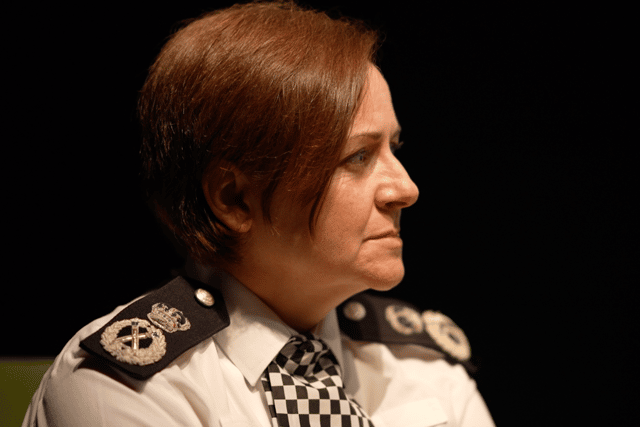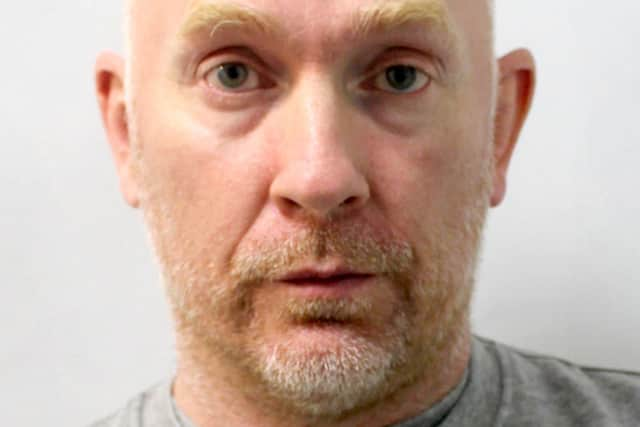Met Police: assistant commissioner ‘hadn’t seen’ sexist Wayne Couzens WhatsApp messages
and live on Freeview channel 276
The Met Police’s assistant commissioner has revealed she “hadn’t seen” the WhatsApp messages shared between Wayne Couzens and other former officers, in which they joked about sexual assault and victims of domestic violence, until she was shown in a documentary.
Released in March, the exchanges between Couzens and ex-police officers Joel Borders and Jonathon Cobban shocked the nation - featuring vile remarks in which Couzens asked his colleague if he had performed sexual acts on an unconscious woman to “see if she was okay”, and Cobban claimed that he had “raped a bystander instead”.
Advertisement
Hide AdAdvertisement
Hide AdThe messages were sent in 2019, two years before Couzens kidnapped, raped, and murdered 33-year-old Sarah Everard - using his police-issued warrant card to stage a false arrest. The release of the messages, which could not be published earlier due to ongoing court proceedings after Couzens exposed himself to three women in 2020 and 2021, raised fresh criticism about how much more the Met could have done to stop him.
But speaking at the screening of a new documentary on the Met by NationalWorld's partner The News Movement, Louisa Rolfe admitted that she had never seen the exchanges. “I actually hadn’t seen these messages before I watched this documentary,” the police chief told a post-screening panel, “but I can say that they made me feel sick to my stomach.”
She added that these sorts of people “absolutely should not” be police officers and should have been flagged earlier, admitting: “We tolerated things we shouldn’t have.” But, Assistant Commissioner Rolfe then insisted that the Met’s leadership teams are working hard to “clean up” the force.


“If you’ve seen the news, you’ll know we’re firing a lot of people,” she said. “We’re getting rid of them. Because we want to get to a good place with this. We want to be anti-racist, anti-sexist, anti-homophobic.”
Advertisement
Hide AdAdvertisement
Hide AdAs part of its mission to ‘clean up’ the force and root out ‘bad’ officers, the Met is also relying on ‘good’ officers to speak up when they see something. One example of someone committed to this task is Met Police officer Sergeant Sarah Wolfe, who told The News Movement that seeing the news about ex-PC David Carrick, who was recently revealed as one of the country’s most prolific sex offenders and sentenced to a minimum of 30 years in prison, was “triggering”.
She explained: “It was triggering, as both a female and as someone who has gone through domestic violence and sexual assault, prior to joining the job.” Sergeant Wolfe added that the reason she wanted to join the Met was to help make a difference, after her experience, and so when she sees reports of police officers letting the force down it “angers” her.
“These people... they’re not one of us,” she said, before revealing that she has reported colleagues in the past when she has witnessed unacceptable behaviour. “I don’t want to work with them,” she explained.
“I don’t want them in my organisation. I don’t want them in my colleagues’ organisation, I don’t want them serving members of the public because they’re not fit to serve members of the public. I feel very strongly about that. It’s coming from the heart.”


Advertisement
Hide AdAdvertisement
Hide AdOne of the things the Met Police has been frequently pulled up on in recent months has been Commissioner Sir Mark Rowley’s refusal to accept that the force is “institutionally racist, sexist, and homophobic.” Baroness Louise Casey afforded the Met these labels when she published her ‘Casey Review’, which was commissioned in the wake of Sarah Everard’s tragic death.
This came up at the panel event when Dania Al-Obeid, one of the campaigners who was arrested while attending a vigil for Ms Everard on Clapham Common in March 2021, asked Assistant Commissioner Rolfe why this was the case.


“If you say it’s just semantics,” Ms Al-Obeid said, “then why is there this focus of, ‘okay, I admit we’re bad, but we’re not that bad’?” She then went on to argue that accepting the diagnosis and “acknowledging that there is deep-rooted sexism and racism in the force” would actually do more to “rebuild trust” with the public.
But Assistant Commissioner Rolfe still refused to use the word - saying that “there are several different definitions” and that it would “paint all officers with the same brush”, devaluing the work that people like Sergeant Wolfe are doing to improve the force.
Advertisement
Hide AdAdvertisement
Hide AdElsewhere in the panel, there was also a discussion about prioritising local frontline policing, so the Met Police can focus on proactive exercises which prevent crime in the first place. The aunt of Zara Aleena, who in June 2022 was murdered by Jordan McSweeney while walking home from a pub, said these are the things that could have saved her niece’s life.
CCTV footage of the night Ms Aleena was murdered shows McSweeney stalking and harassing other women in the hour before he attacked the 35-year-old aspiring lawyer.
Speaking at McSweeney’s trial in November 2022, prosecutor Oliver Glasgow KC explained: “He can be seen on CCTV following and observing a number of different women, obviously interested in them and their movements. Tragically for Zara Aleena, it was her on whom he became fixated.”
Farah Naz said: “The homocide team we worked with were impeccable. But if the other teams in the Met Police had been up to that standard, we never would have had to meet them. If mistakes hadn’t been made, Zara would still be alive.”
You can watch the whole of the documentary Met Police: rotten to the core? on YouTube and find out more about NationalWorld's partner organisation The News Movement.
